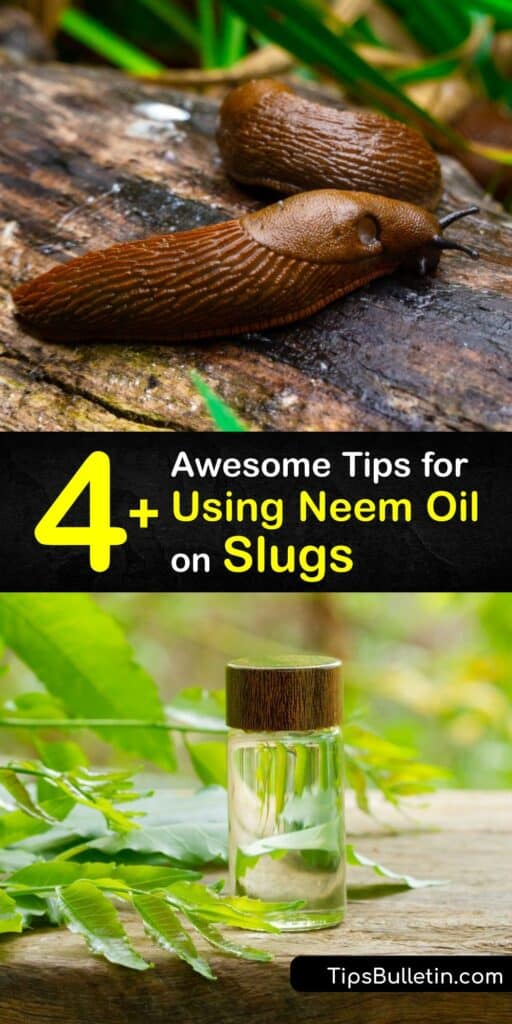Free HK shipping for orders above 500 HKD. Free worldwide shipping for orders above 200 USD.

Does neem oil kill slugs? Garden pests pose a massive challenge to organic gardening; using neem oil to repel slugs or treat fungus like powdery mildew helps solve this issue without chemical compounds. Neem oil comes from the Azadirachta indica plant or neem tree. Cold pressing the leaf, seeds, and other tree elements yield this popular gardening oil.
Gardeners frequently use neem oil to fight the rose slug because it includes multiple active chemicals in its raw state, including azadirachtin. Slugs leave characteristic silvery trails around affected plants and often devour the plant leaves. Ragged holes and tearing are signs of a slug infestation.
Slug control with neem oil offers gardeners a straightforward and non-toxic method to treat slugs without harming plants or pollinating insects. Neem oil is used in many commercial gardening remedies and is often combined with horticultural oil, Castile soap, liquid soap, and slug bait.
Learning how to use neem oil for slugs allows growers to save their garden from severe damage while still using organic methods. Slugs are slimy with soft bodies and are considered a type of mollusk.
Though slugs have their uses in breaking down debris in the garden for nitrogen which benefits the plants, and providing a food source for helpful insects and birds, they cause a great deal of harm if left unchecked.
Slugs consume leaf matter, with a preference for tender young leaves. Their feeding habits leave holes littered throughout the plant, often leading to death or reduced crop production.
Applying neem oil to repel slugs reduces the population of this pest without affecting the number of beneficial insects visiting the garden and protects vital processes such as pollination.
As interest in organic and natural gardening rises, neem oil is gaining popularity for its insecticidal properties and ability to treat other common plant issues such as powdery mildew. Slug control with neem oil is a cost-effective, organic, and straightforward way to address a slug problem.
Because of its high concentrations of powerful active components, pure neem oil is best used as a soil drench, as it may burn if applied directly to leaves and other plant regions. The most efficient neem oil treatment method is soil soaks, also known as neem oil soil drenches.
Neem oil is a systemic pesticide because the plant absorbs it. The drench soaks into the soil, where plant roots take it in. This approach, unlike topical applications, has no risk of beneficial insects coming into contact with it. Only insects consuming the leaves of the plant are affected.
Place two to three cups of the prepared neem soil drench around the roots of each slug-affected plant. Repeat every two weeks for an existing slug infestation. Drenches stay in the plant for up to 22 days and are non-toxic, so growers may use them on crops near harvest without fear of negative consequences.
Neem oil is commonly made into a spray with an emulsifier like liquid soap before being applied around and directly to the affected plant. When slugs come to feast on the leaves, neem oil enters their system and eradicates them to prevent further leaf damage.
Add the slug spray ingredients to a spray bottle and shake vigorously. Spray the DIY pesticide around slug-infested or vulnerable plants and directly onto the plants, including their leaves.
You know slugs leave white or silver trails on soil and plants alike and tattered holes in leaves, but if you see signs of pest activity and are unsure which insect is causing harm to your plant, it’s prudent to start insect control immediately. Neem oil is a good option and will likely impact the problem given the broad range of bugs it affects.
Neem oil insecticide is considered harmless for beneficial insects such as bees and butterflies; it only operates on insects consuming plant leaf matter and damaging the plant. The oil is straightforward and works well by itself or with other natural pest control products such as insecticidal soap.
Like Bacillus thuringiensis, neem oil is popular for garden pest treatment without destroying beneficial insect populations. Garlic is another natural slug repellent as it contains the compound Allicin, which repels and kills slugs and snails. Combining neem and garlic creates a potent slug treatment.
Bring the water to a boil and finely chop the garlic cloves. Soak the chopped cloves in the water for 12 hours. Remove the garlic cloves from the liquid with a sieve and add the neem oil. Spray around affected plants liberally with the neem and garlic solution. Pay close attention to ensure complete coverage of leaves where slugs are likely to target.
Organic gardeners generally avoid using agricultural chemicals and processed or artificial fertilizers. Many commercial and chemical pesticides are available to treat slugs, though they are toxic to humans and pets and, sometimes, make the produce unsuitable for consumption.
Neem oil is a viable alternative to poisonous pesticides and poses no threat to pollinators, people, and animals. Organic gardeners use neem oil as a natural option to remove slugs without harming themselves or other plants and animals.
Slugs are a widespread garden pest and easily take over a space if not addressed swiftly. Slug control with neem oil is an excellent option for organic gardening and repels and eliminates slugs rapidly. Neem oil may be employed in many ways, from soil drenches to sprays and combination treatments.

If you enjoyed this article on how to use neem oil for slugs, please share this information on using neem oil to repel slugs with your friends and family on Pinterest and Facebook.
This content was originally published here.
